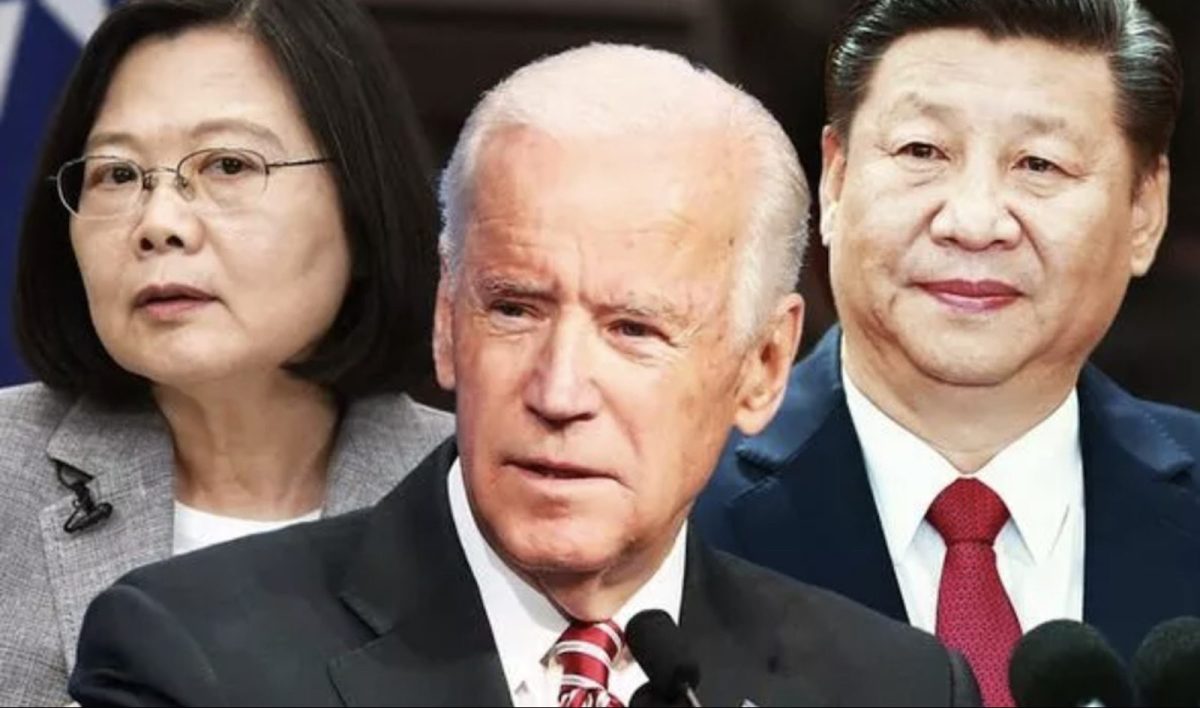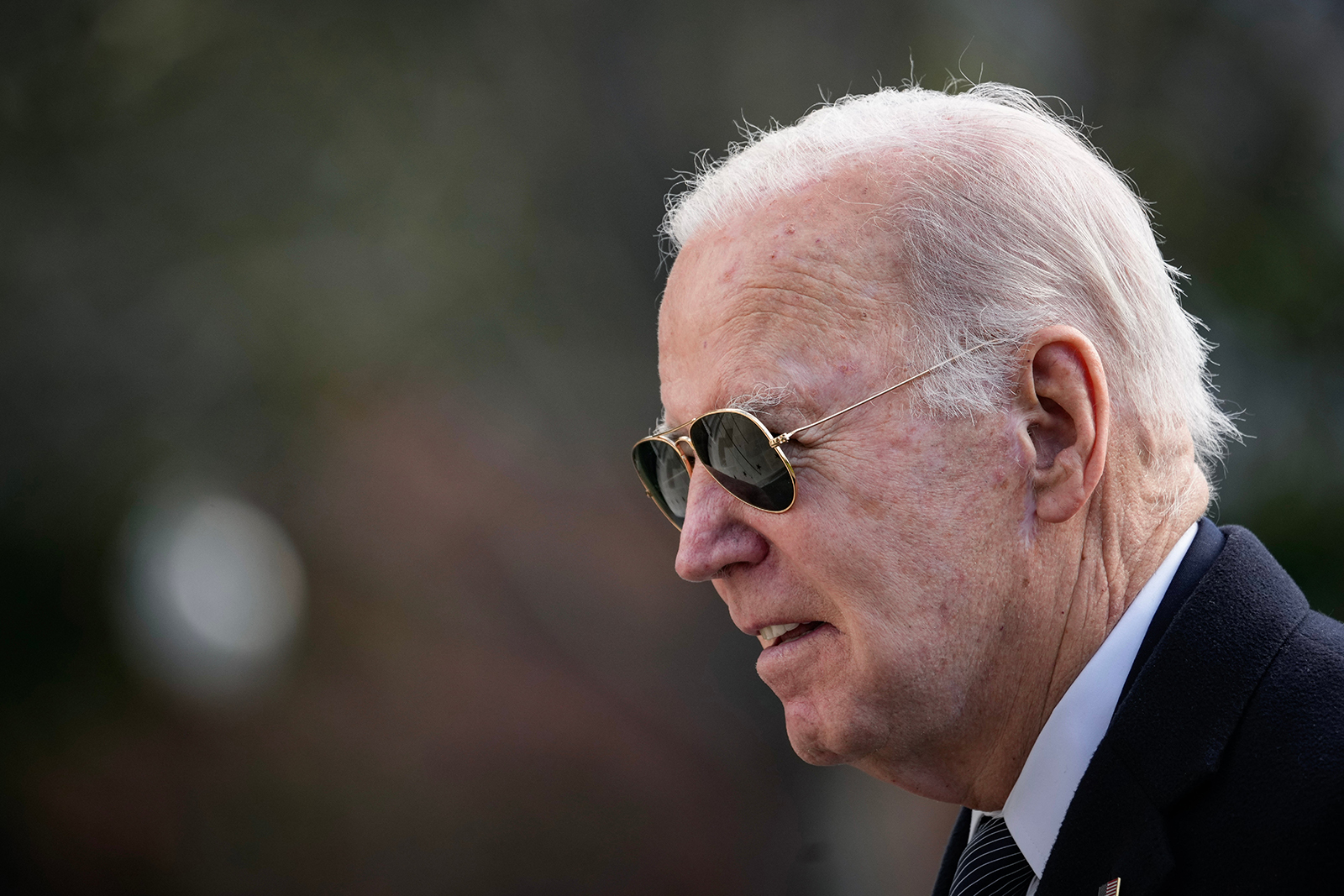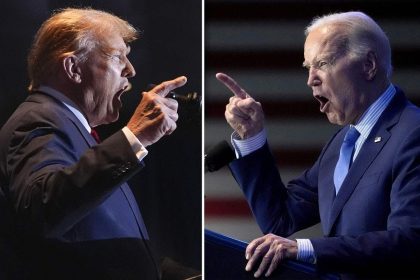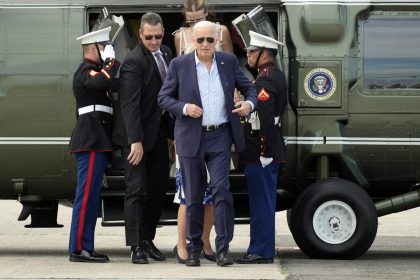[ad_1]
Over a dozen People’s Liberation Army (PLA) fighter jets pierced Taiwan’s air defense identification zone (ADIZ) over the weekend, a Chinese provocation aimed in part at newly installed President Joe Biden’s administration.
Taiwan’s Defense Ministry claimed that the Chinese squadron consisted of six J-10 fighters, four J-16s, two SU-30s, a Y-8 reconnaissance aircraft and two Y-8 anti-submarine aircraft, and that it issued radio warnings and deployed air defense missile systems in response.
The military maneuver was an early warning signal to the Biden administration, which has already expressed in its first days a “rock-solid†commitment to the self-governing island that is crucial to America’s military posture in the Asia-Pacific.
China views Taiwan as a renegade province that must be incorporated with the mainland, as Chinese President Xi Jinping famously said in 2018, “by any means necessary.†He said then that any move towards independence would be a “profound disaster†for Taiwan.
It is too early to tell if hotly opposed views on Taiwan will set the tenor for broad US-China relations under Biden. But hopes for a quick thaw and return to the pre-Trump status quo ante of prioritizing business over security interests have already been dented somewhat less than a week into the new president’s term.
“We urge Beijing to cease its military, diplomatic, and economic pressure against Taiwan and instead engage in meaningful dialogue with Taiwan’s democratically elected representatives,†State Department spokesman Ned Price said immediately after the PLA’s successive provocative maneuvers over the weekend.
Adding military muscle to diplomatic rhetoric, the US Indo-Pacific Command announced on Saturday that the USS Theodore Roosevelt aircraft carrier group would conduct “routine operations†in the South China Sea, including maritime strike exercises and tactical training between surface and air units.
The Biden administration has thus seemingly indicated its commitment to continue and even bolster Trump’s pro-Taiwan line, which under his tenure expanded military cooperation and eased age-old restrictions on US-Taiwan diplomatic exchanges.
That was seen, no doubt provocatively from Beijing’s perspective, in Taiwan’s de facto ambassador to the US Bi-khim Hsiao’s formal official attendance at Biden’s January 20 inauguration, marking the first time that had happened in four decades.
Taiwan’s Central News Agency (CNA) noted that in the past Taiwanese representatives attended US inauguration ceremonies only in informal capacities “through the courtesy of US legislators.â€
This time, the Taiwanese envoy received a formal invitation directly from the US Joint Congressional Committee on Inaugural Ceremonies, which would have required direct authorization by Biden’s transition team.
The visibly pleased Taiwanese official tweeted a video showing herself standing before the US Capitol building, declaring, “Democracy is our common language, and freedom is our common objective†and that she “look[s] forward to working with the next administration in advancing our mutual values and interests.â€
“The invitation to Taiwan’s Representative to the US to attend the Inaugural Ceremonies, the most significant event celebrating US democracy, highlights the close and cordial ties between Taiwan and the United States based on shared values,†Taiwan’s Foreign Ministry said in an official statement.
Emily Horne, a spokesperson for the White House National Security Council, made it clear that the US commitment to Taiwan was “rock-solid.†Just days earlier, the outgoing Trump administration was expected to send its Ambassador to United Nations, Kelly Craft, for an unprecedented visit to Taipei.
Although neither Craft nor former Secretary of State Mike Pompeo pressed ahead with the visit, for still unclear reasons, there are strong indications of a bipartisan consensus on support for Taiwan.
Last year, the Trump administration extended over US$5 billion in arms sales to Taiwan, including coastal defense systems, drones, missiles, and artillery. This is in addition to an $8 billion deal to deliver F-16 fighter Jets to Taiwan in the coming years.
During his confirmation hearing last week, newly-confirmed Secretary of Defense Lloyd Austin signaled policy continuity on China and “a laser-like focus on developing the right capabilities, plans, operational concepts, that’ll ensure that we maintain a competitive edge†over the Asian powerhouse.
Asked about Chinese threats to Taiwan, including the potential for a full-scale Chinese invasion, the Pentagon chief emphasized a policy of deterrence and active military assistance to the island ally.
“Our efforts will be to ensure that we do everything to make sure that China doesn’t take that decision,†said Austin, clarifying “our support to Taiwan has been rock solid over the years and has been [of] bipartisan support. We’ve been strong in our commitments, and certainly I’ll make sure that we’re living up to our commitments to support Taiwan’s ability to defend itself.â€
Taiwanese legislator Wang Ting-yu, who co-chairs the foreign affairs and defense committee in Taiwan’s parliament, has emphasized the need for a strong deterrence strategy from the Biden administration.
“The question is, Taiwan will be prepared to protect our home. What will the world, especially the United States, what will you do?†The message that Biden should send to Chinese President Xi is simple, Wang said: “Don’t even try it,†he told Foreign Policy magazine.
From Beijing’s perspective, the US is making all the wrong moves if it truly seeks to keep the peace. Outgoing top envoy Pompeo announced he was voiding past restrictions on US-Taiwan interactions on January 9, less than two weeks before Biden’s inauguration.
There was earlier some question over how the incoming Biden administration would approach the decision, but Biden’s nominee for secretary of state, Antony Blinken, indicated his agreement in his confirmation hearing on January 19.
When asked about the decision to rescind the previous guidelines, Blinken replied, “I want to see that process through to conclusion if it hasn’t been completed, to make sure that we’re acting pursuant to the mandate in the (Taiwan Assurance) Act that looks at creating more space for contacts.â€
Whether the Biden administration seeks to publicize such contacts and visits, as the Trump administration did, is another question, one that could overshadow other areas of the relationship if perceived by Beijing has intentionally provocative.
“My guess is the Biden administration just decides to go back to the practice of being less public. And that is because there is no perceived need to use Taiwan as a weapon against China—that’s harmful to Taiwan’s interests,†said Bonnie Glaser, senior advisor for Asia and director of the China Power Project at the Center for Strategic and International Studies, a Washington, DC think tank.
“I think that using Taiwan as a card or weapon to poke Beijing in the eye … that practice will disappear.â€
[ad_2]












